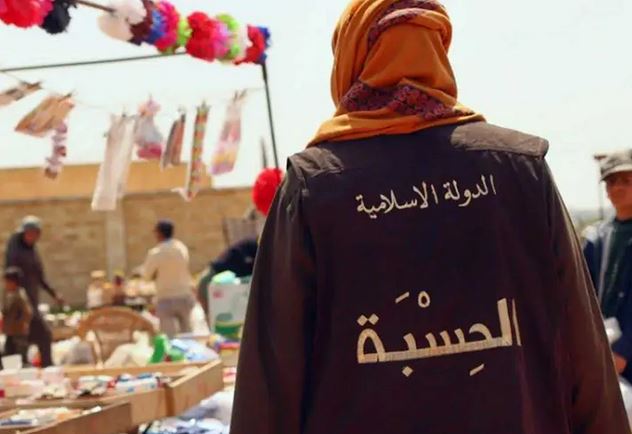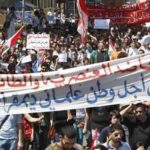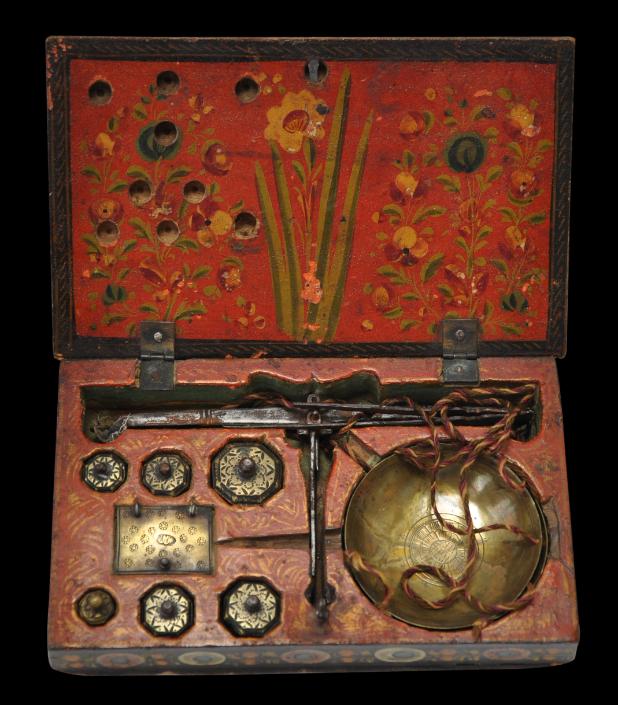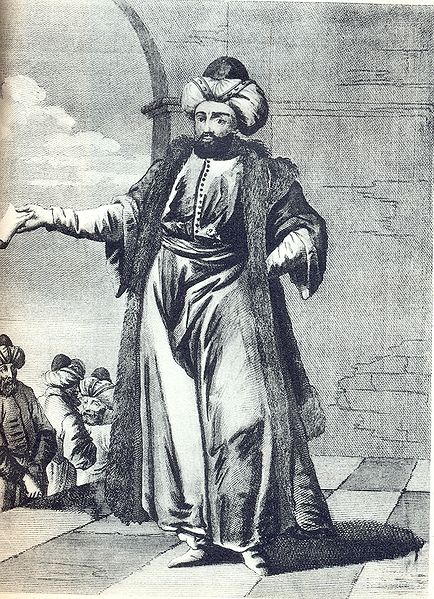
No one disagrees about the talk of the domination of the Islamist phenomenon, and its hegemony over the political scene in all the various Arab Muslim states, even in the extent of its disparity and contrast. Nor that the growth of this phenomenon and its spread on the heels of the Arab Spring has thrown up a flood of questions and musings and a whole host of difficulties and challenges.
ONE OF THESE PARADOXES was the emergence of a religious police and a Tunisian committee promoting virtue and preventing vice, in the very cradle of the Arab revolutions that called for the values of freedom and democracy. What, exactly, are the historical roots for a committee for the Promotion of Virtue and the Prevention of Vice? And where do its paradoxes lie?
The institution of the supervisory Hisba[1] – emerged at the foundation of the Islamic state, with an economic function, and in which the fundamental role of the muhtasib comptroller was to prevent fraudulence in manufacture and financial transactions, in particular to supervise weights and measures and maintain their accuracy and proportions. The Prophet Muhammad entrusted Samrā’ al-Asadiyya with the office of the muhtasib over Mecca, and she had a whip to beat cheating traders to judge by what the Muslim historians recorded. Similarly, [the Caliph] ‘Umar ibn al-Khattāb appointed al-Shafā’ Bint Sulaymān to the muhtasib over Medina.
In his work Al-Muqaddima Ibn Khaldun gives an indication of the most conspicuous functions of the muhtasib: to investigate vice, to issue the commensurate penalties and disciplinary actions, to encourage people to act according to the public interest such as the avoiding the blocking up of streets, preventing hauliers and mariners from overloading their freight, and issuing rulings against property owners whose buildings were in danger of collapse, and issuing corporal punishment against teachers in kuttāb schools and elsewhere who beat their pupils excessively, and the prevention of fraud and deception in the payment of wages, and in the use of weights and measures.
We can therefore see that the function of this body is represented by various functions of today’s police structures, whereas the Wahhabi conception of the committee for the Promotion of Virtue and the Prevention of Vice has turned it into a religious police that confiscates individual freedoms and infringes upon natural rights.
In this context it is important to remember that on the doctrinal level no group or body is entitled to claim that it enjoys some sort of Islamic untouchability granted especially to it by heaven, in contrast to all other Muslims, or any immunity from criticism or questioning, given that sanctity and infallibility are the absolute characteristics of God alone.
Islam asserted the difference between the general sphere and the private sphere
God Almighty did not grant His power in the world to some people to punish in His name, whether these be Infidels or those who differ with them in opinion. Those who arrogate to themselves this so-called right are assuming the role of a divinity, whereas ‘There is no God but God’, and they are issuing rulings in areas where the Almighty Himself declined to adjudicate. For He left the human intellect free and unfettered, to think without borders and to believe if it so wished, or to disbelieve if it so wished, and even to declare it openly if it so wished.
For the Qur’ān confirms that ‘there is no compulsion in religion’ in the rest of its parts, since the issue of faith is a matter of conviction and choice. Al-Razi in his commentary on this verse in his work Mafātīh al-Ghayb, states that
the Almighty did not construct the matter of faith upon obligation or imposition, but rather upon ability and choice … when he illustrated the proofs of tawhīd conclusively.
He goes on to say:
After clarifying these proofs the only excuse for an infidel for remaining in his Disbelief is that he had been compelled to belief and forced thereto. This is something that cannot be permitted during a mortal’s life since this life, by definition, is an abode of tribulation. So the application of force and compulsion would constitute a negation of the meaning of tribulation and test.
The equivalent to this is the Almighty’s words:
Then whosoever will, let him believe, and whosoever will, let him disbelieve [Qur’ān XVIII,29]
as elsewhere:
And if thy Lord willed, all who are in the earth would have believed together. Wouldst thou (Muhammad) compel men until they are believers? [Quran X,99]
Islam asserted the difference between the general sphere and the private sphere, and granted Mankind the possibility to escape from the grip of the community and to enjoy his right to be an independent individual. This separation is considered to be a pillar of political modernity in its constituting a comprehensive intellectual construct which intersects with a number of secondary issues: the state and the community, the public and private spheres, the citizen and the individual, public life and private life.
The Prophet says in this context: “Do not spy on people nor backbite one other “ and “each Muslim is forbidden to spill the blood of another Muslim, to take his wealth or to besmirch his honour.” He adds:
“He who overlooks the shortcomings of a Muslim in this life will have his own shortcomings forgiven by God on the Day of Resurrection. Do not pursue the slip-ups of Muslims, he who does that will have his own slip-ups pursued by God, and the slip-ups that God pursues will be made manifest, be they committed deep within his own home.”
The Prophet warns against investigation of others’ consciences when he says:
“Ye who believe, avoid being over-opinionated, since some opinion is sinful; and do not spy on others, for I was not commanded to delve into the hearts of men.”
These commandments established by God are associated with Man’s freedom, the respect of his humanity and the protection of his dignity, and of his private life. Let none intrude upon him or infringe upon his private or personal affairs.
On the societal level, the Committee penetrates into a thorny arena, that is the arena of “speaking in God’s name”. It claims to be applying God’s Sharī‘a while it is actually attempting to impose its particular one-sided reading of Islam, unfettered by doubt that it is simply putting forward its own understanding of Islam and its texts.
While the scholars of Islam allow for differences in the various divisions of the Sharī‘a, in that there are many who say that truth is multifaceted according to the differences of their interpreters, while some hold that it is possible for the Sharī‘a to hold two evidences that contradict each other.
Islamic history demonstrates that Abu Bakr and ‘Umar differed on something like thirty issues. We may recall, just by way of example, the capturing of the Apostates and the dividing up of conquered lands or the consigning of them to the public weal, or the preferences given in the matter of grants or the question of inheritance. There are also other points of difference recorded in the Almuwatta’,[2] which may be consulted.
Today, there are many and various interpretations which are open to being developed and adjusted in accordance with new circumstances. While the Saudi woman is forbidden to drive a car, Hasan al-Turabi issued a fatwa allowing a Muslim woman to marry a non-Muslim male if she chose. He recognised her right to marry a Jew or a Christian or a pagan. And he recognised a woman’s equality of testimony and of inheritance, while the Turkish Islamic government annulled the constitutional punishment for adultery and the execution penalty, and confirms the Muslim’s right to change his faith. So which Sharī‘a, perchance, is our Committee to apply and attempt to defend?
On the psychological level this Committee panders to the instincts of the people and its delusions about itself and the world it lives in, particularly when it makes it believe that the hand and eye of God Almighty is upon the face of the earth. One might class this as a form of unhealthy delirium, something fuelled by microfascism, by prevailing passions rooted deep within ourselves, the desire for control over the conduct of another, the pleasure of dominating him and confiscating his freedom.

Suggested Reading
In conclusion, the powers at Tunis must confront this Committee which in all boldness dreams of becoming a parallel state. The Promotion of Virtue is not a religious matter that men of the cloth can take upon themselves. It is, rather, a mundane issue to be undertaken solely by the sovereign who in Islam, as Imam Muhammad ‘Abduh put it, is “a civilian ruler in all aspects”. If a fanatic is moved to apply punishments on his own authority, he is committing the crime of ‘encroachment’: that is of arrogating to himself the powers of the ruler and emulating his attributes. In which case he is to be punished twice over: once for trespassing against innocent, civilian victims and violating their rights, and once again for encroachment.
We have a good precedent set by the receipt by the scholars of al-Zaytūna, at the beginning of the 19th century, of the ‘Wahhabi Letter’ sent by Sa‘ūd ibn ‘Abd al‘Azīz ibn Sa‘ūd to the Bey of Tunis Hammouda Pasha al-Husaynī (1795-1814). This missive took the form of an Aslim Taslam (“Become a Muslim and thou shalt be saved”) letter which the Prophet sent to the Kings of the World, and in which the scholars were urged to adopt the Wahhabi madhhab. The response of the scholars of Tunis to the ‘Wahhabi Letter’ from the legal and interpretative point of view was that it was not permissible to fight against other Muslims or intimidate them on account of any difference of opinion, considering that their security, wealth and blood were sanctities protected by both the spirit and the letter of the Law.
[1] See Glossary
[2] The ‘Well-Trodden Path’ by Imām Mālik ibn Anas, the earliest extant composition of Islamic Law and the basic primer in the Maliki school of thought. (Ed.)
Sources
Fakhr al-Dīn al-Rāzī, Al-Tafsīr al-Kabīr and Mafātīh al-Ghayb, Dār al-Kutub al-‘Ilmiyya, Beirut 2000.
Ibn Khaldūn, Al-Muqaddima, Dār al-Tūnisiyya lil-Nashr 1989.
Ahmad ibn Abī al-Diyāf, Athāf Ahl al-Zamān fī Akhbār Mulūk Tūnis wa-‘Ahd al-Amān, Dār al-Tūnisiyya lil-Nashr 1990.



